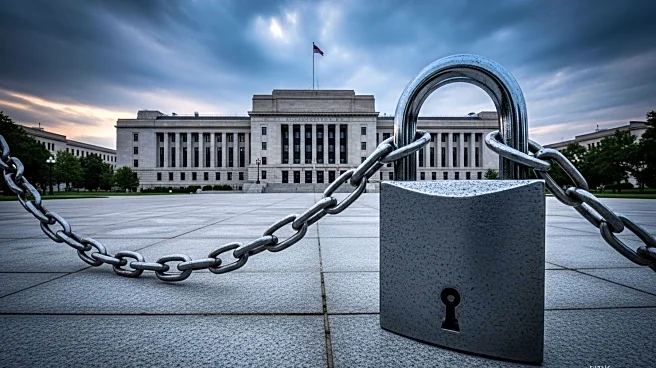What is the story about?
What's Happening?
The potential government shutdown poses significant risks to national security, as essential military personnel are required to continue working without pay. Non-essential civilian employees face furloughs, leaving critical functions unmanned. National security expert Bryan Stern warns that the shutdown sends a negative message to allies and adversaries, potentially increasing vulnerabilities. The Defense Department has outlined contingency plans to maintain essential operations, but the prolonged absence of funding could exacerbate existing security threats and impact the retention of skilled personnel.
Why It's Important?
The shutdown highlights the fragility of national security infrastructure in the face of political gridlock. The furlough of non-essential personnel could lead to gaps in intelligence and defense operations, increasing the risk of security breaches. The financial strain on government employees may also drive talent away from public service, weakening the country's defense capabilities. The situation underscores the need for stable funding to ensure the continuous operation of critical national security functions.
What's Next?
If the shutdown persists, pressure will mount on Congress to reach a resolution to restore funding and prevent further disruptions. The Defense Department may need to reassess its contingency plans to mitigate the impact on national security. The situation could also prompt discussions on long-term solutions to prevent future shutdowns and ensure the stability of essential government functions.















